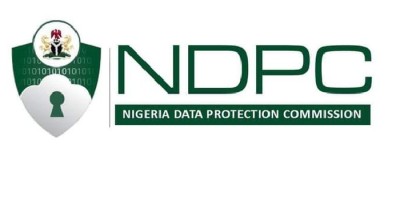Policy & Regulatory Measures Against the Coronavirus Pandemic in Nigeria
Posted on Wed 1 Apr 2020
- Download Resource
The Coronavirus Disease (COVID-19) continues to significantly impact people’s health, businesses and the global economy. From country shutdowns, disruption of supply chains, crash in stocks, drop in commodity prices, loss of daily income, the negative economic effects are numerous. Now a global pandemic, corporates, regulators and governments across the world are responding to the scourge.
In Nigeria, various measures – championed by the Central Bank of Nigeria (“CBN”), the National Assembly, the Organized Private Sector under the aegis of the Nigerian Private Sector Coalition Against COVID-19 (“Private Sector Coalition”) and other key market players – have been put in place, while others are currently being developed, to cushion the negative impact of the Coronavirus on businesses, households and the larger economy. These measures include special intervention funds, credit support facilities, regulatory forbearance, and tax reliefs. This article highlights the key policy, regulatory and legislative actions being taken to mitigate the adverse impacts of the currently ravaging coronavirus disease in Nigeria.
-
CBN POLICY MEASURES
On March 16, 2020, in the wake of the plunge in international oil prices and the COVID-19 outbreak, the CBN, in a move to preserve the stability of the Nigerian financial market, introduced some policy measures via a circular, referenced: FPR/DIR/GEN/CIR/07/049 and titled “CBN Policy Measures in response to COVID-19 Outbreak and Spillovers”, which provides for the following:
-
Extension of moratorium for all CBN intervention facilities – With effect from March 1, 2020, all CBN intervention facilities have been granted additional one year on all principal repayments. In this regard, the participating financial institutions are required to provide new amortization schedules for the beneficiaries of the various loans.
-
Reduction in the applicable interest rates on all CBN intervention facilities – Interest rates on all applicable CBN intervention facilities have been reduced from 9% to 5% per annum, with effect from March 1, 2020.
-
Creation of a N50 Billion Targeted Credit Facility – A Fifty-Billion-Naira (N50) facility has been created to provide support for targeted sectors of the economy, particularly households and the micro, small and medium-sized enterprises (“MSMEs”), that are particularly affected by the COVID-19 outbreak. The credit facility, which is established through the NIRSAL Microfinance Bank, is also open to other vulnerable entrepreneurs including hoteliers, airline service providers and healthcare merchants.
-
Credit Support for the Healthcare Industry – Given the serious pressure brought on the healthcare industry by the COVID-19 outbreak, a special One-Hundred-Billion-Naira (N100) intervention facility has been established, open to pharmaceutical companies, hospitals and healthcare practitioners intending to expand/open their drug manufacturing plants in Nigeria or expand/build their health facilities to first class centers, as the case may be.
-
Regulatory forbearance – Deposit Money Banks (“DMBs”) have been given leave to extend the tenors of credits granted to businesses and households affected by the Coronavirus outbreak. In this regard, temporary and time-limited restructuring of loan terms are to be considered for all credits granted to businesses, particularly in the oil & gas, agriculture, and manufacturing sectors.
-
Strengthening of the CBN Loan/Deposit Ratio (LDR) – In order to sustain the successful implementation of the existing LDR Policy, in the light of the negative consequences of the COVID-19 on the financial system, the CBN is considering further support for the industry funding levels (by providing liquidity backstops as the lender of last resort) in order to maintain the capacity of DMBs to continue to extend low-interest and longer-tenured credits to households and businesses.
IMPLEMENTATION GUIDELINES
Further to the establishment of the aforementioned policy measures, the CBN issued two governing documents (“Implementation Guidelines”), prescribing the operational modalities for the N50 Billion Targeted Credit Facility and the N100 Billion Healthcare Credit Support Scheme.
On March 23, 2020, the first governing document titled: “Guidelines for the Implementation of the N50 Billion Targeted Credit Facility”, was introduced by the CBN via a circular referenced: FPRD/DIR/GEN/CIR/07/050. Also, on March 25, 2020, the second governing document titled: “Guidelines for the Operations of the N100 Billion Credit Support for the Healthcare Sector”, was similarly introduced via another circular referenced: FPR/DIR/GEN/CIR/07/051.
Some of the operational modalities, prescribed by the Implementation Guidelines, are shown in the table below.
-
|
MODALITIES |
N50 BILLION TARGETED CREDIT FACILITY |
N100 BILLION HEALTHCARE CREDIT SUPPORT SCHEME |
|
Eligible Participants |
Households and enterprises with verifiable evidence of the adverse impact of the COVID-19 pandemic, and enterprises with a bankable plan to benefit from the intervention fund. |
Manufacturers of pharmaceutical drugs and medical equipment; Hospitals/clinics; Diagnostic centers/laboratories; Fitness & wellness centers; Rehabilitation centers; Dialysis centers; Blood banks and the like; Enterprises involved in pharmaceutical & medical products’ distribution and logistics services; and other enterprises in the healthcare sector as may be determined by the CBN, from time to time. |
|
Activities Covered |
Agricultural value chain activities, Hospitality (accommodation & food services), Health (pharmaceuticals and medical supplies), Airline Services, Manufacturing or Value addition, Trading, and any other income generating activities prescribed by the CBN. |
Manufacturing of pharmaceutical drugs and medical equipment; Distribution of medical & pharmaceutical drugs and supplies; Establishment/expansion/upgrade of basic and specialized healthcare facilities; Medical & pharmaceutical supplies; Manufacturing of distribution technology for medical & pharmaceutical drugs; Medical and pharmaceutical Research and Development (R&D); and any other healthcare value chain activity prescribed by the CBN. |
|
Funding |
The source of funding shall be the Micro, Small and Medium Enterprises Development Fund (MSMEDF) |
The source of funding for the Scheme shall be the Real Sector Support Facility – Differentiated Cash Reserves Requirement (RSSF-DCRR) |
|
Participating Financial Institutions |
NIRSAL Microfinance Bank (“NMFB”) |
Deposit Money Banks (“DMBs”), and Development Finance Institutions (“DFIs”) |
|
Loan Limit & Tenor |
Maximum of N25 Million for MSMEs. Maximum of N3 Million for Households. |
Working Capital – 20% of the average of 3 years of an enterprise’s turn-over, subject to a maximum of N500 Million per obligor (20% of the previous year’s turn-over for an enterprise that is less than 3 years in operation). The tenor of Working Capital shall be maximum of 1 year with provision for rollover for a period not more than 3 years; and Term Loan – Maximum of N2 Billion per obligor. The tenor of Term Loan shall be maximum of 10 years with a maximum of 1 year moratorium on repayment (In case of construction, the tenor shall be determined by the completion date) |
|
Interest Rate |
5% per annum (all inclusive) up to 28th February 2021; and 9% per annum (all inclusive) as from 1st March 2021. |
5% per annum (all inclusive) up to 28th February 2021; and 9% per annum (all inclusive) as from 1st March 2021. |
|
Collateral Requirement |
Movable assets duly registered with the National Collateral Registry, Deposit of title documents (in perfectible state), Deed of Debenture for Stocks (in perfectible state), Irrevocable domiciliation of proceeds, Two acceptable guarantors, Personal guarantee, and Insurance Policy (Life & Comprehensive Insurance) with NMFB as the First Loss Payee. |
The collateral to be pledged by borrowers under the Scheme shall be as may be required under the RSSF-DCRR. |
|
Repayment Modalities |
On installment basis according to the nature of the particular enterprise, and as contained in the repayment schedule or work plan provided at the application stage. |
On installment basis, according to the approved repayment schedule. |













